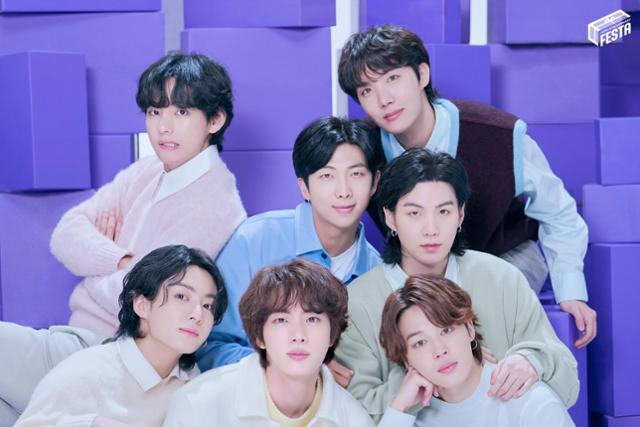In the K-pop scene, two 'miracles' have emerged from smaller entertainment agencies, leading to the term "miracle of the smaller idols." These miracles are none other than BTS and FIFTY FIFTY. However, the trajectories of these two miracle groups have recently diverged significantly.
Idol groups from smaller agencies typically debut with limited investments and lower initial buzz compared to those from major agencies. This is mainly due to the financial constraints of smaller agencies. As a result, their market potential was often limited. While major agencies could leverage their solid fan base and prior international experience to penetrate global markets, it was considered challenging for smaller agencies to establish a foothold overseas.
BTS was the first to break this mold. While the Korean music industry was dominated by the three major agencies (SM, YG, JYP Entertainment), BTS's rise propelled Big Hit Entertainment (now HYBE) to rapid growth, now recognized as one of the top four major agencies in Korea. BTS is credited with transforming HYBE into a company with a market capitalization of approximately 11 trillion won.
Debuting in 2013 from the then smaller agency Big Hit Entertainment, BTS quickly swept rookie awards and topped music charts, outperforming idols from major agencies. Their success didn't stop domestically. From 2017 onwards, they dominated global charts, including YouTube, Billboard, iTunes, Japan's Oricon, UK's Official Chart, Spotify, and Apple Music, establishing themselves as global music icons. Beyond their music, they've made impactful contributions, such as their UN speech and the 'LOVE MYSELF' campaign. After completing their group activities, they've also been successfully pursuing solo projects. Recently, they announced a renewal of their contract with Big Hit Music, hinting at more group activities until 2025.

FIFTY FIFTY Speaks Out: 'Wish We Had Never Become Singers, We Don't Want to Return'
In contrast, FIFTY FIFTY's miracle seemed short-lived. While they made it to Billboard's 'Hot 100' chart within four months of their debut, their activities halted after members filed for a contract suspension against their agency, Attract, in June. The members are currently challenging a court's decision, making their return uncertain.
Industry insiders lament, "We could've had another BTS." They attribute the differing outcomes of the two groups to 'communication' and the trust built upon it.
BTS renewed their contract twice before its expiration, a testament to the strong communication and trust between the group and the agency. BTS's success is rooted in their ability to tell their stories through music, a vision emphasized by their producer, Bang Si-hyuk, since their inception. This mutual respect and trust between BTS, Bang Si-hyuk, and the staff have yielded optimal results.
On the other hand, FIFTY FIFTY's journey seems to be on the opposite track. Minor disagreements between the members and the agency snowballed due to a lack of communication, leading to legal disputes. Despite the agency's efforts to resolve the issues, the members have shut down communication channels. The possibility of reconciliation seems almost non-existent.
The contrasting paths of these 'miracle' groups offer insights into the future of K-pop. An industry insider commented, "While agencies and artists are bound by 'exclusive contracts,' without a foundation of communication and trust, even this bond loses its significance. For the globalized K-pop market to maintain its stronghold, it's crucial for agencies and artists to respect each other, communicate, and build mutual trust."






